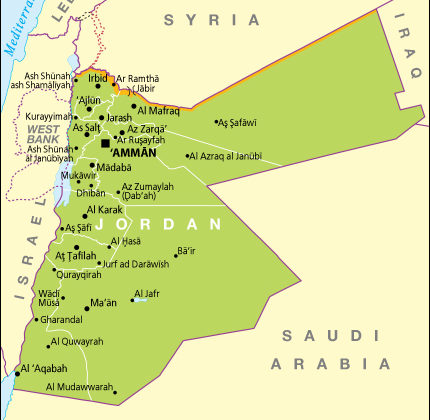The fast moving dynamics of regional geopolitics demands a new perspective on the challenges, risks and solutions that each country faces. In Jordan we are seeing unfavorable changes in the economy from debt and GDP, as well as an increase in radicalization. In order to face these challenges, perhaps we need a new, more scientific approach, with a systematic roadmap with short, medium and long-term measures and strategies.
The major current and future challenges in Jordan are driven from the deteriorating economic situation and the impact that is having on people. The regional situation, security concerns and political challenges are reshaping historical alliances, which is in turn amplifying the economic downturn. The new reality means that we can no longer depend on aid and donations, we must become an independent and productive economy that relies on a functioning and sustainable taxation system.
While this is not an easy nor quick process, in order to start down this path the political elite must change the way they think and urgently develop a concrete strategy and begin on the path to change. We should see socio-economic change across all Jordanian cities and villages, based on the needs and characteristics of each area. We must be more realistic with microeconomic projects involving local communities, food security plans and cooperatives. We should also see more diverse projects such as alternative energy and sustainable agriculture plans. These are how we secure the independent future of Jordan.
We must also address the insidious threat of radicalization with a more comprehensive and effective plan. Our security services must be commended for their work in protecting us. But while they are working to address the symptoms, we must also address the underlying illness. Our anti-terrorism strategies cannot be limited to security measures and investigations. The real battle against terrorism and radicalization is a cultural one, and it is a long and complex process.
At the very least, we need a clear vision, political determination and above all day-to-day actions and follow up. An effective anti-terrorism strategy also addresses the socioeconomic issues underlying radicalization; it addresses poverty and the cultural defacement. We must empower our people to enable them to take control of their lives so they have hope and strive for the future, rather than being victims of the past.
The political elite must also make an effort to restore the credibility of public institutions and policies. This must be done through a transparent channel of dialogue with the people. The state should have preventative policies, forecasting crises before they bubble to the surface, rather than reacting, ignoring or sweeping under the carpet. The government seems to be chasing the issues after they appear, such as the assassination of Nahed Hattar last year, or the viral spread of rumors on social media accepted as truth by citizens.
The challenges of today are likely to be the threats and risks of tomorrow, so we must intervene and prevent these issues from evolving while also planning and building the country and society we all want to live in.
Dr.Amer Al Sabaileh

